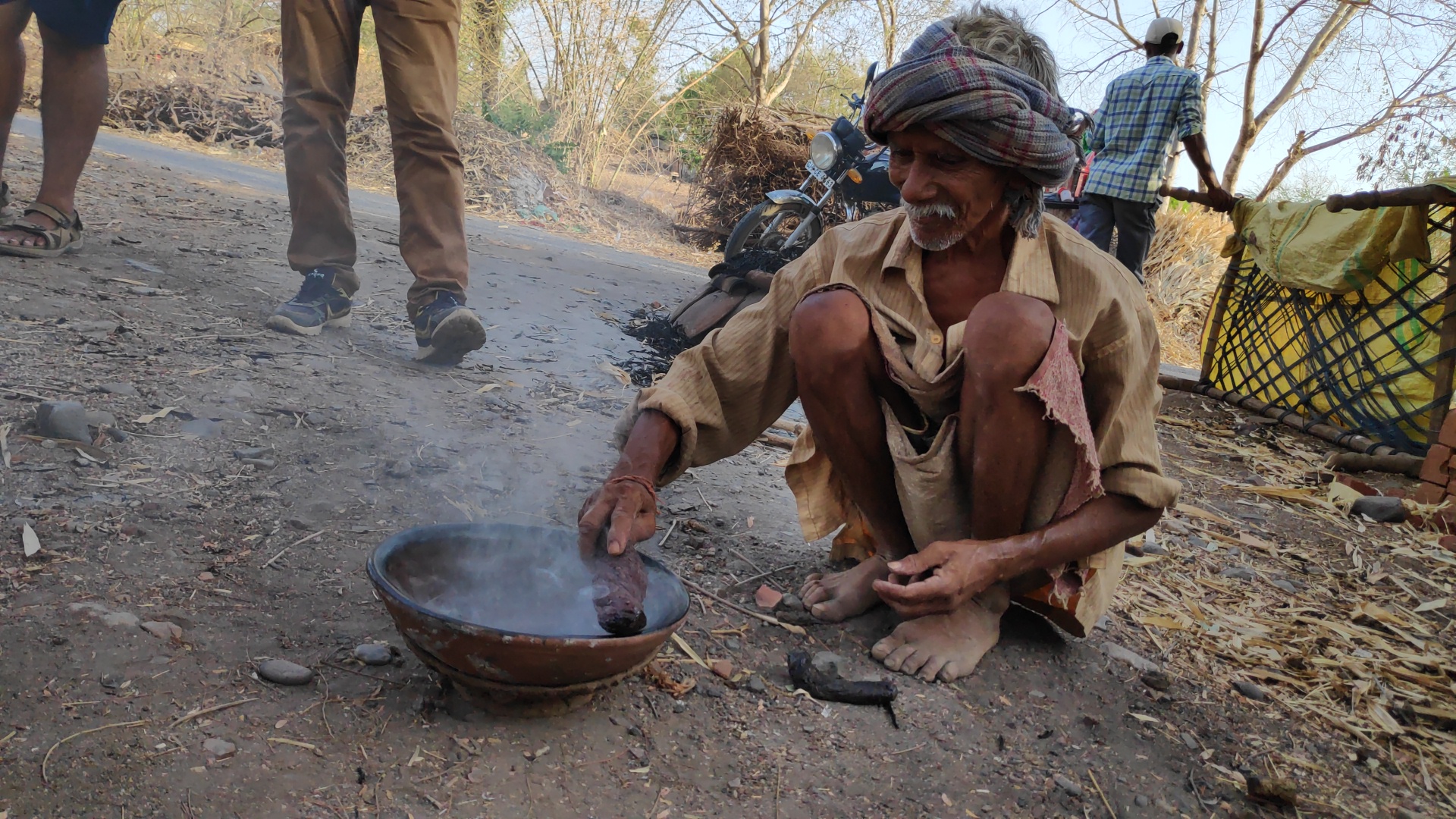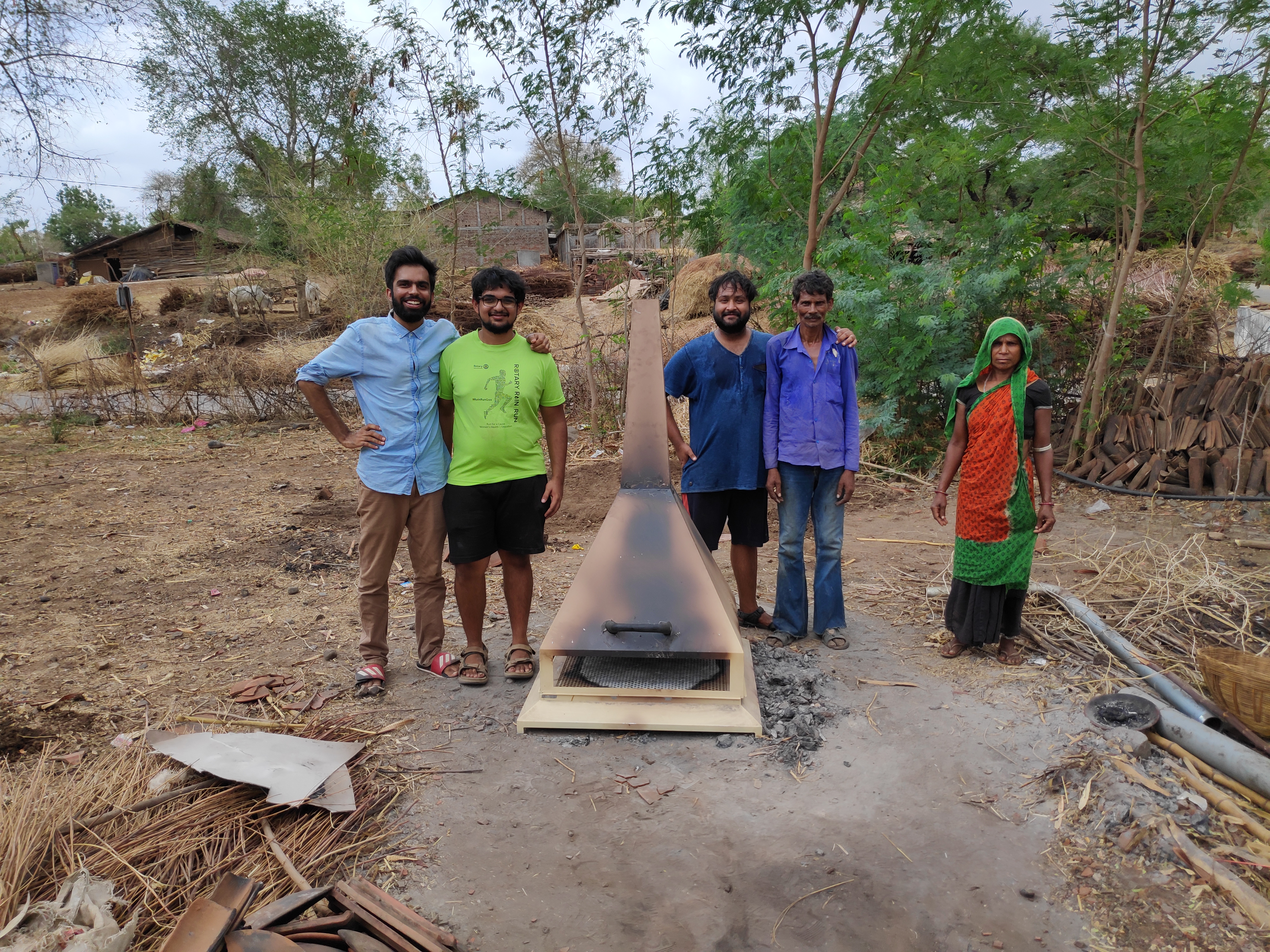Every summer when there are holidays, parents are concerned about their children, particularly those who are not yet trapped in exam fever. The college students look for internship, summer school or other activities to build their skills. Some just want to have fun.
Society for Research and Initiatives for Sustainable Technologies and Institutions [SRISTI] and Grassroots Innovation Augmentation Network [GIAN] are organizing several summer schools every year in collaboration with FAB LAB of National Innovation Foundation [NIF] at Grambharti, Amrapur.

SRISTI-UNICEF Summer Schools have been organized for the last several years to develop devices for economically poor people through inclusive and open innovation. A palm leaf broom maker has to beat the leaf on a wooden plank with nails to tear the leaf into a fibre. The drudgery involved in this act drains the energy of women who generally do this task. Similarly, hundreds of thousands of tribals have to crack mahua nut to get the seed out for oil extraction. The construction workers carry brick on their heads straining their necks and spines. Women in Saurashtra and many other regions get hurt while harvesting the fruits from cactus likeopuntia growing on the field bunds. Amla harvesting in the forest often involves cutting branches rather than just harvesting the fruits.
These and many other problems have been mobilized by the Honey Bee Network to challenge the young people to design solution to get over the indifference of formal design and technology institutions. Eventually, every institution in the country will have to take the responsibility OF mapping the unmet social needs in their hinterland and address them through student projects and summer and winter schools. Like every initiative that Honey Bee Network has taken, it may take years before policy and institutional reforms follow. The structure of governance in any society cannot remain indifferent to the persistent problems of the disadvantaged people for too long.

This year, the summer schools will be organized at Grambharti campus, Amrapur, 15 km from Gandhinagar. The technology/engineering /design students are invited to address one or more of the four problem domains. The focus of the first school is to fabricate mechanical devices that address the problems of tribal farmers, forest dwellers, roadside artisans and mechanics, agro and food processing etc. The second school will focus on developing electronic sensor-based solutions for addressing various problems in health, education, agriculture and other need of poor people as well as differently abled communities. The third school aims at developing apps for monitoring on-farm/in-field trials of innovative technologies in agriculture, livestock, farm machinery, food, health, nutrition, etc. It should be possible for farmers to submit progress of the crops and incidence of specific pests and diseases through this app. They can share their own solutions or seek wisdom from fellow farmers. The fourth summer school is being organized by GIAN to focus on windmills design for salt workers and other disadvantaged small farmers in coastal areas with high wind velocity and a lot of sunlight. Hybrid models of wind, solar and thermal gradient, etc., will be explored.
Another subset of GIAN Summer School is involving ITI, polytechnic students, school dropouts, rural and urban youth to specifically address the problems of women to reduce drudgery in various farm, non-farm, post-harvest and other craft activities.
Three weeks may appear too short a time to complete the need assessment, development of design, fabrication, and iteration with the users to redesign after destroying the first prototype and eventually move from proof of concept to the product development. We are hoping that students who apply to summerschool@sristi.org or gian@gian.org will not leave the ideas half baked. The Honey Bee Network is committed to taking these ideas forward with the help of volunteer fabricators, designers and professional tool room managers. If some other technical institutions want to organize summer schools in parallel with ours, we will welcome such distributed design and inclusive innovation campaign. Imagine if a million strong student community spends at least one summer out of their academic programme on addressing the unmet social needs, the country will not take too long to overcome persistent inertia in certain sectors and spaces.
LEARN MORE
More information Click Here
Blog SRISTI UNICEF Summer School Click Here
SUMMER SCHOOL
PRESENTATION
REPORT
PROJECTS
- “Cotton-Picking Device” (2015)
- “Potter Community Issues” (2015)
- “Brick carrying device” (2015)
- “Device to increase safety in spray can dismantling” (2015)
- “Bullet santi” (2014)
- “Elimination of child labor” (2013)
FLIKR GALLERY
PROF. ANIL K. GUPTA BLOG
- UNICEF-SRISTI Summer Inclusive Innovation School 2015 (Anil K. Gupta blog, 23 June, 2015)
- Summer School on inclusive Innovations 2015 (Anil K. Gupta blog, 25 April 2015)
- Summer of ideas : Engaging minds and matters (Anil K. Gupta blog, 28 May 2013)
- Shall this summer be a summer of ideas? (Anil K. Gupta blog, 11 June, 2009)

